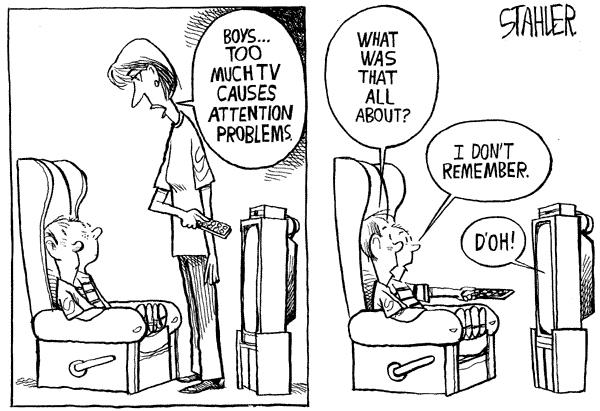by: Bryan Hutchinson
It’s a sad reality.
Most people don’t understand ADHD. And, quite frankly, many do not want to.
Unfortunately, too many are intolerant or ignorant. ADHD is an excuse, they say. Some go further than that, as you will soon read, and blame ADHD on pharmaceutical companies who, as you know, created ADHD so they can sell their over-priced medications. They have that power, apparently.
Those reasons and more are why ADD ADHD is so misunderstood . It truly is amazing what some people believe or want to believe, isn’t it?
Today I want to call your attention to an article published by Jaqui Karr.
“Destroying Children with the Cloak of ADHD: Parents Need to Pay Attention”
Karr states unequivocally:
The problems AND answers lie in food. Sadly the pharmaceutical companies will do everything in their power to get the “experts” and medical community to say otherwise. Even sadder is that for the mainstream, whatever the guy in the white lab coat says must be true.
Although she does not outright state it, I get the impression that she’s trying to imply that pharmaceutical companies have made up the disorder. At best, Karr is suggesting that we are fooled by the pharmaceutical companies.
Karr is wrong about ADHD. Worse than wrong, she comes across as blaming parents (and adults with ADHD) for the issues they are suffering from caused by the “made-up” disorder. To give her the benefit of the doubt, she might not mean to and it’s likely she does believe that food alone is the cause and the cure.
Celiac Disease is not ADHD.
Karr suffers from Celiac Disease and the treatment is to absolutely avoid Gluten. Removing Gluten from her diet predictably improved her health. Now she’s on a mission. Overall, in my opinion, a good mission to help people improve their diets, but to attack ADHD and attacking pharmaceutical companies and then attacking parents for their poor diet choices for their children that’s just not a good way to go about it.
To be fair, she has some very good points about Gluten and she could have included the possibility of food allergies and one of the worst culprits, milk. I’ve written about Gluten and how avoiding it does help (but beware of withdrawal)! Yes, for some of us, it does. It’s no secret.
Remember the myth about excess sugar causing ADHD? Many still believe that even though research has disproved it time and time again. Karr goes for broke by also blaming “massive sugar spikes”. This is the perfect myth to latch onto because it was such a widespread belief years ago. Then she blames soda.
Legitimacy!
If Karr truly wants to be helpful and give us dieting suggestions then she needs to first research ADHD and not simply blame the most common food myths.
For decades people with ADHD, and parents of children with ADHD, have been fighting thebattle of legitimacy.
Good parents, parents who truly do care about their children have had to contend with the perception that they are not good parents or they don’t feed their kids right or they don’t discipline them effectively and so many other hurtful myths.
Karr did not help them any with her article.
How about this:
ADHD is real.
Myths and ignorance do not change that.
Seriously, even I enjoy a good conspiracy theory, but to imply that pharmaceutical companies have the power to create a disorder to sell drugs and in the process convince governments and health organizations throughout the world is, well, let’s use plain English here: Ridiculous.
I mean, c’mon, really?
Someone call the FDA, now!
And while you are at it call Congress and the American Psychiatric Association. They’ve all been suckered. Darn that guy in the white lab coat. He really had us going.
ADHD is not curable.
To help set the record straight I will be interviewing Doctor Charles Parker who wrote the book on ADHD medications, literally. He is the author of ADHD Medication Rules. What Karr may find surprising is that Dr. Parker discusses on his blog diet modifications and how removing Gluten and Milk from the diet improves ADHD symptoms for some people, but does not cure ADHD!
Karr is wrong to indicate that ADHD is not real and worse, she missed an opportunity to discuss and share her valuable experience and expertise on nutrition with the ADHD community.
~Bryan















